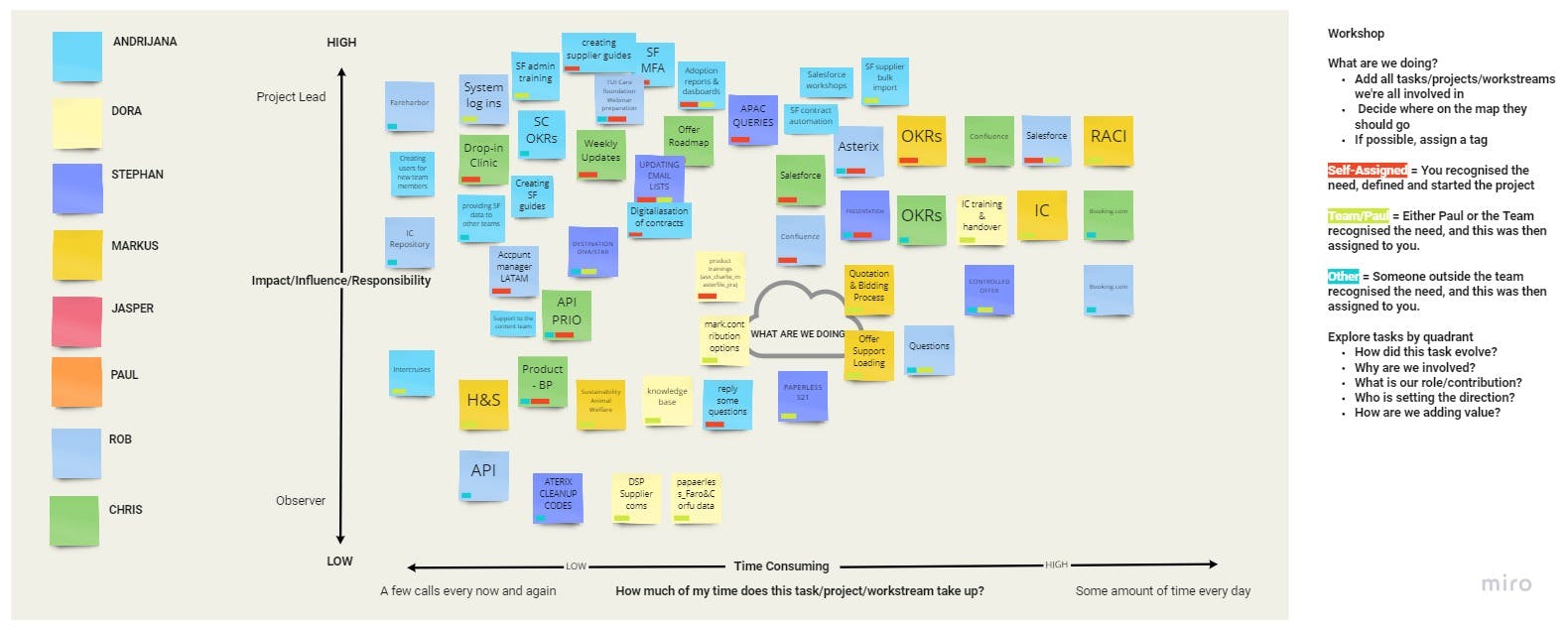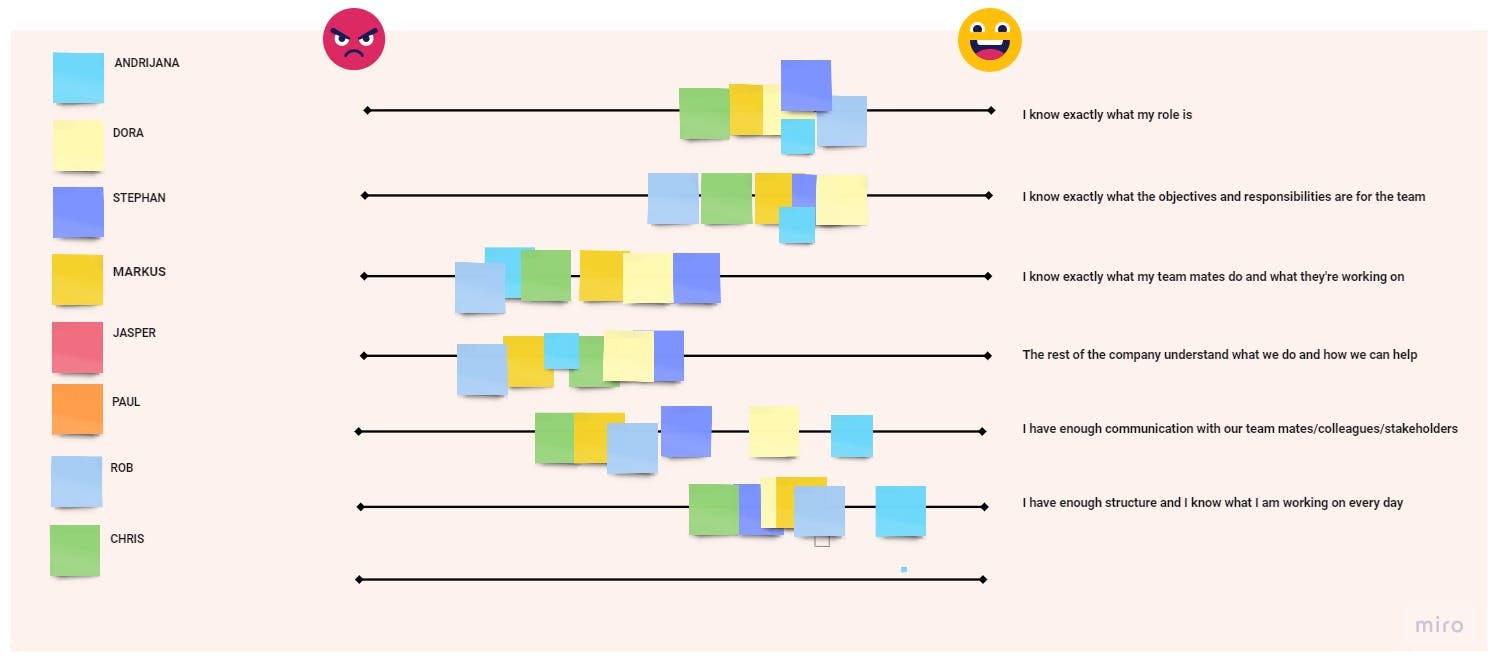Skip to content

Ran a workshop to explore what is happening and how we feel about our workload, tasks, and our roles.
We mapped out our current tasks, showing which ones are the most time consuming vs the role we have in them. We also recorded how we came to be involved.


We then recorded how we felt about certain questions:


Alongside these, and many other comments, we’ve then mapped this out to the following 14 points:
Summary
What is happening?
Details
Impact/Symptoms
What is happening?
Details
Impact/Symptoms
We (as a team) have potentially 60+ CURRENT workstreams
These can obviously be bundled in some cases, but also in some cases they could easily be expanded.
Average 10x per person, <4hrs per workstream per week - it's not enough time. In the future this could grow out of control.
A lot of workstreams Self-Assigned or Other
There's a pretty even split, but still a large number of workstreams are assigned from NOT within the team.
How can we control the workload when we either assign it ourselves or other teams are dictating our workload? This could contribute to too many workstreams and not enough work being done thoroughly and completed.
There's no process in place for starting, prioritising, measuring etc
We need to do something to help us organise our work, and not just jump into things as soon as they're available.
We end up just doing anything that comes our way, and it dillutes our time.
We're not very good at getting things onto 'paper'
It's important to get things down and recorded, and also improve our skills when it comes to visualising processes.
Information is lost, it might not be clear, there is no sense of alignment between teams or individuals.
We are lacking a coherent team structure
We need clear team structure, for us and for everybody else.
The wrong people are called into different workstreams, or we don't react to questions/queries because we don't know who is looking after what.
We're more reactive than proactive
Instead of waiting for jobs to come in, we should be getting out there, making assessments, and beginning workstreams that we think will have the most impact on the team.
If we just wait for work to come to us, we'll only be doing the work that others deem most important and missing opportunities to do things that could have a significant impact on the wider team.
We get a lot of questions
We spend a lot of time answering questions - is there something we could do centralise this and make it more efficient.
We spend time answering questions, even if we're not the right person. Sometimes questions go unanswered because we don't know who should be answering them
We're not evaluating our tasks in terms of ease/effort
We don't get the chance to assist easiness (or amount of effort) in a task.
We're not working efficiently - either by ignoring difficult tasks or by missing opportunities for quick wins
Nobody has visibility on what we do
We need to give more visibility to the teams and allow them to see what we're working on.
The wider team may feel concerned or lost, unsure about what is happening, effort may be spent trying to initiate activities that are already happening
We're not using the correct systems/platforms
Jira isn't working - we need something better and simpler.
Wasted time, wasted effort, important tasks and details not recorded
We don't have enough contact as a team
Calls every couple of days, even if they're short, would help us all have transparency on our activities.
Lack of understanding or transparency on what our team is doing means we miss opportunities to validate ideas, or to connect different workstreams
Our communications with the wider team are disjointed and unclear
This needs to be sorted - Teams/Email etc - we need a defined set of channels
We get emails individually or to the group email, we get posts on various different teams, we get chat messages - this is confusing for us, but even more confusing for the wider team who don't know the best way to work with us
We're saying 'yes' to everything
Workstreams are starting from call invites or simple questions
We end up being the contact or even the lead on projects/workstreams without any assessment on whether it's the right thing to do
We have OKRs, but overall our objectives and goals aren't clear
OKRs only cover some of the workstreams, and so we still have many tasks and projects not explained and rationalised and not tracked, and no central source.
We're unsure what new work to take and unsure how to prioritise leading to inefficiencies and confusion
There are no rows in this table
Want to print your doc?
This is not the way.
This is not the way.

Try clicking the ⋯ next to your doc name or using a keyboard shortcut (
CtrlP
) instead.